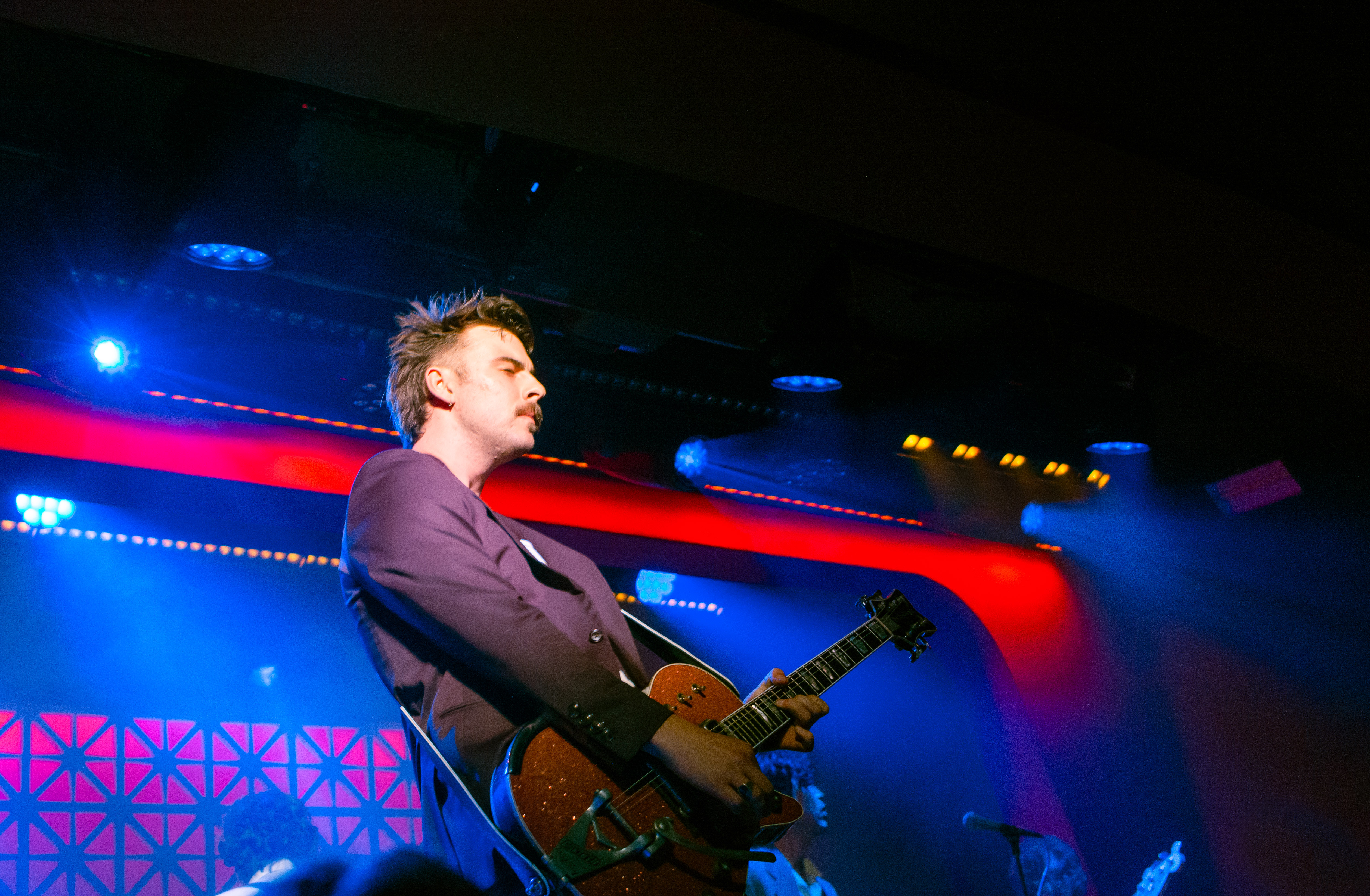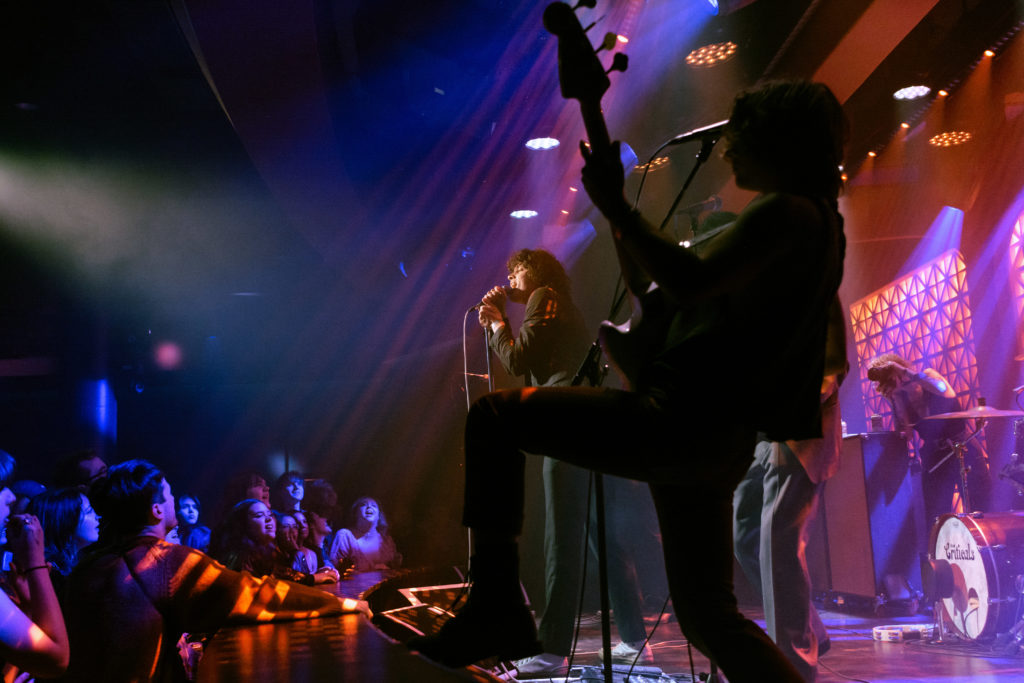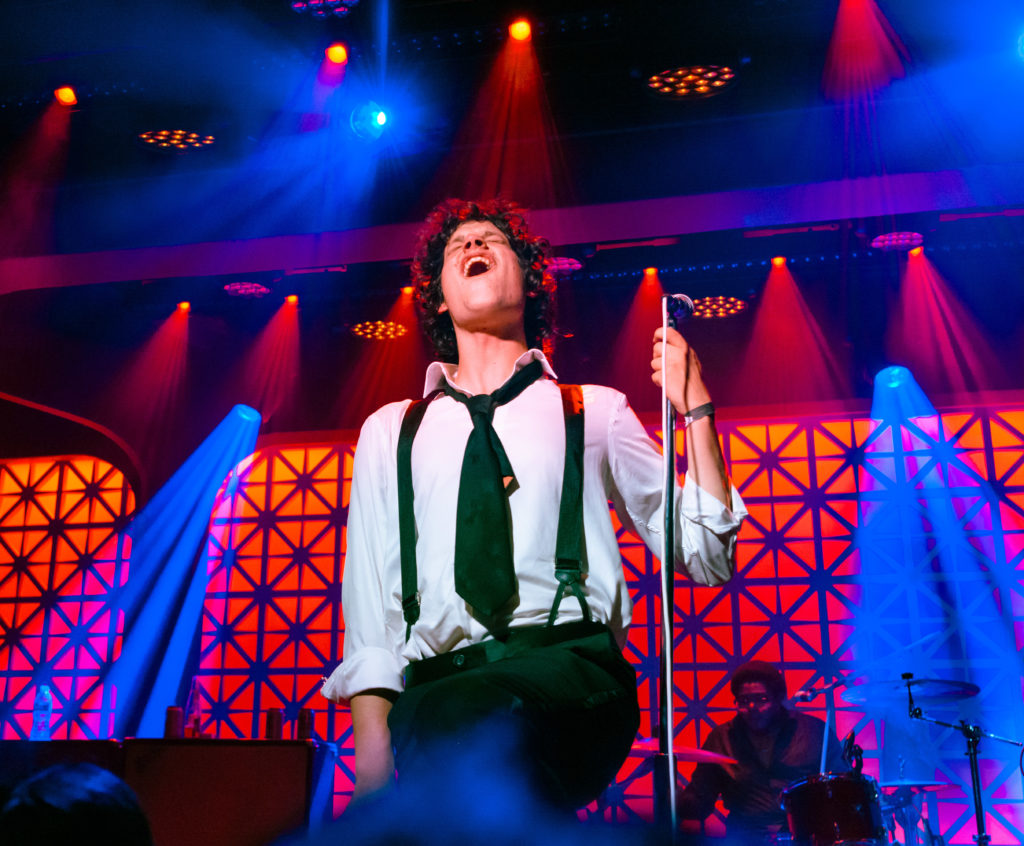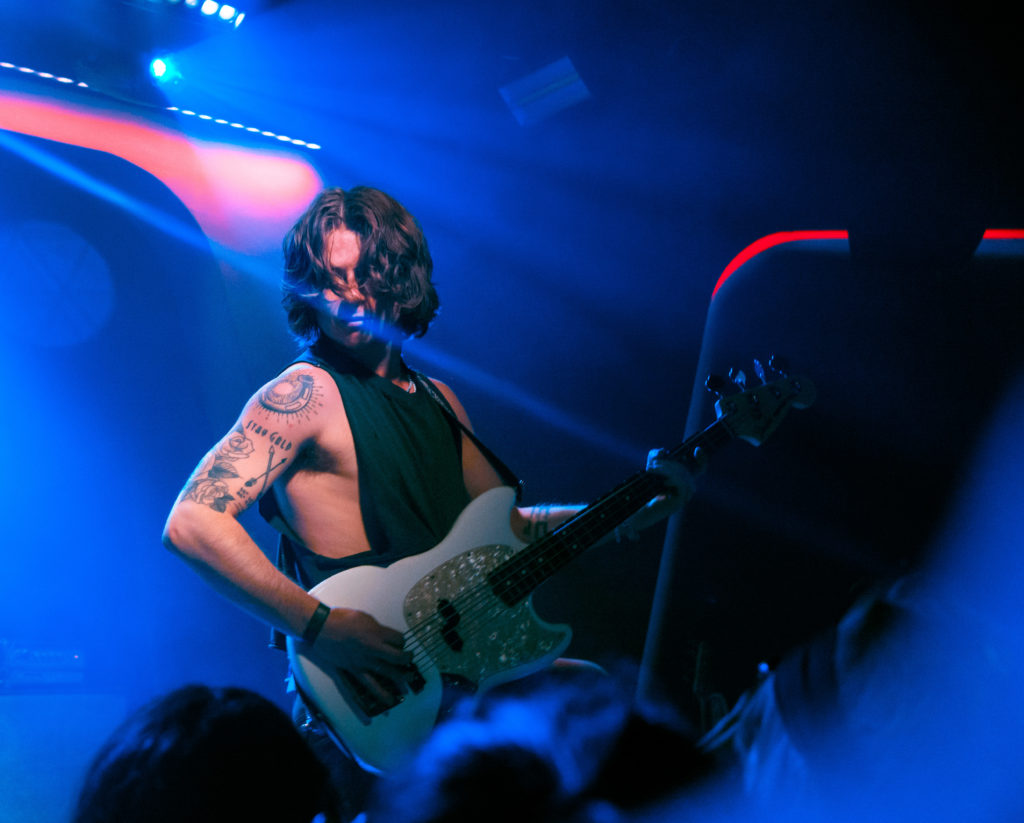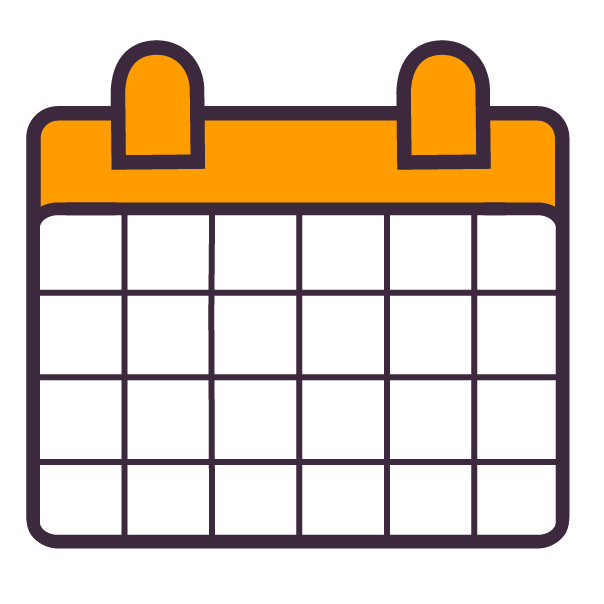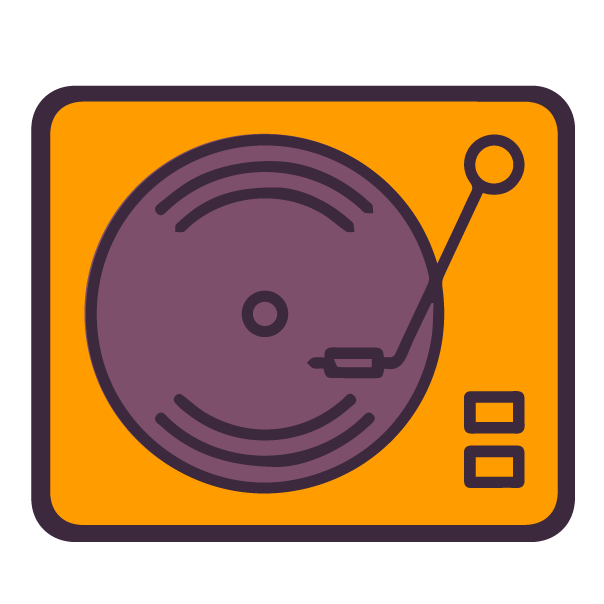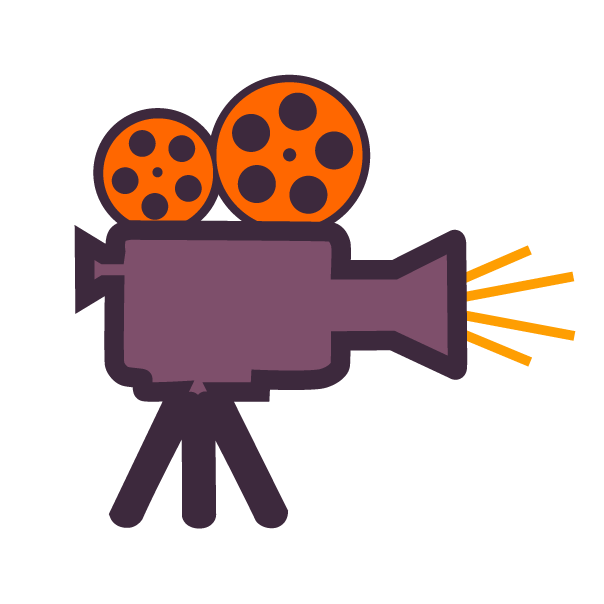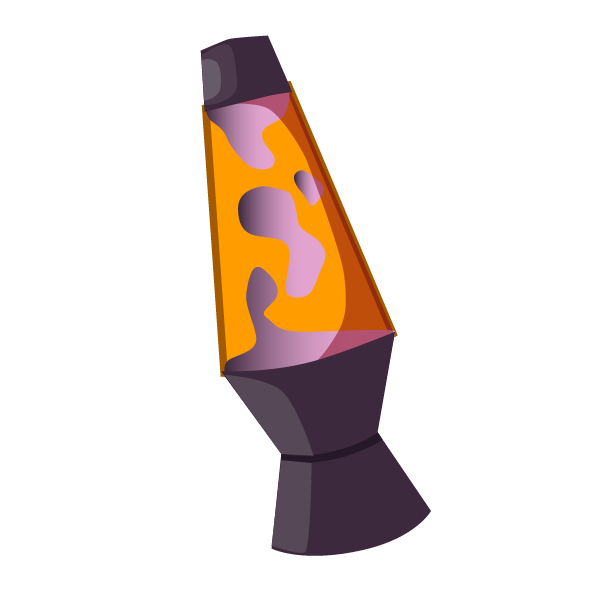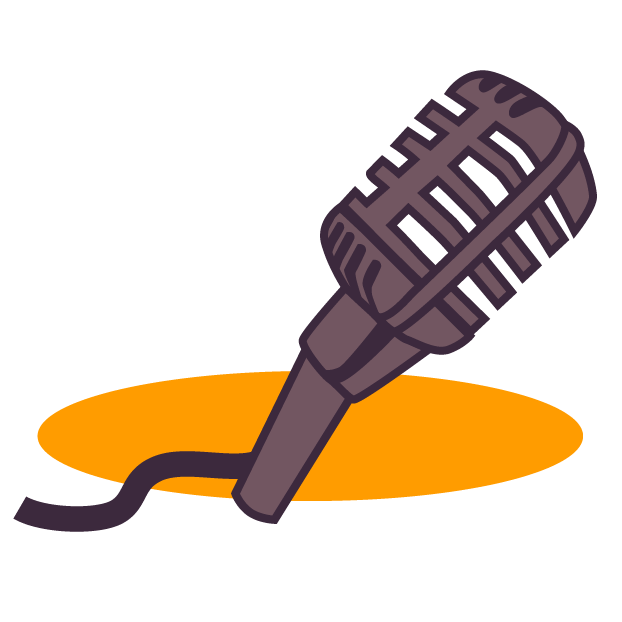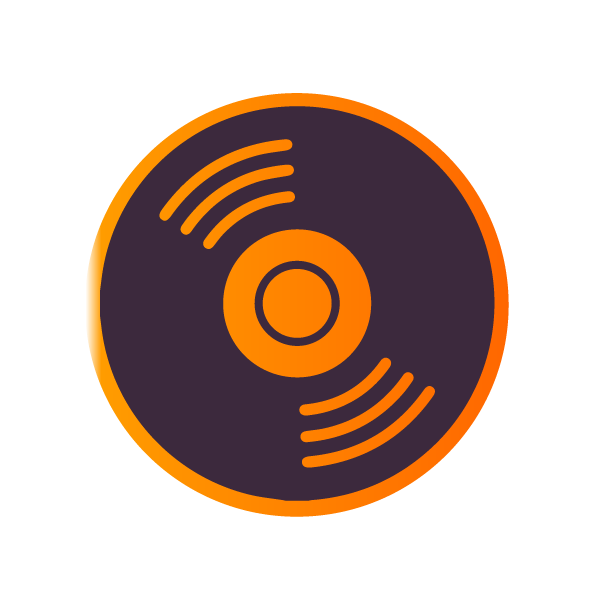By Emma Hug Rosenstein | April 9, 2023
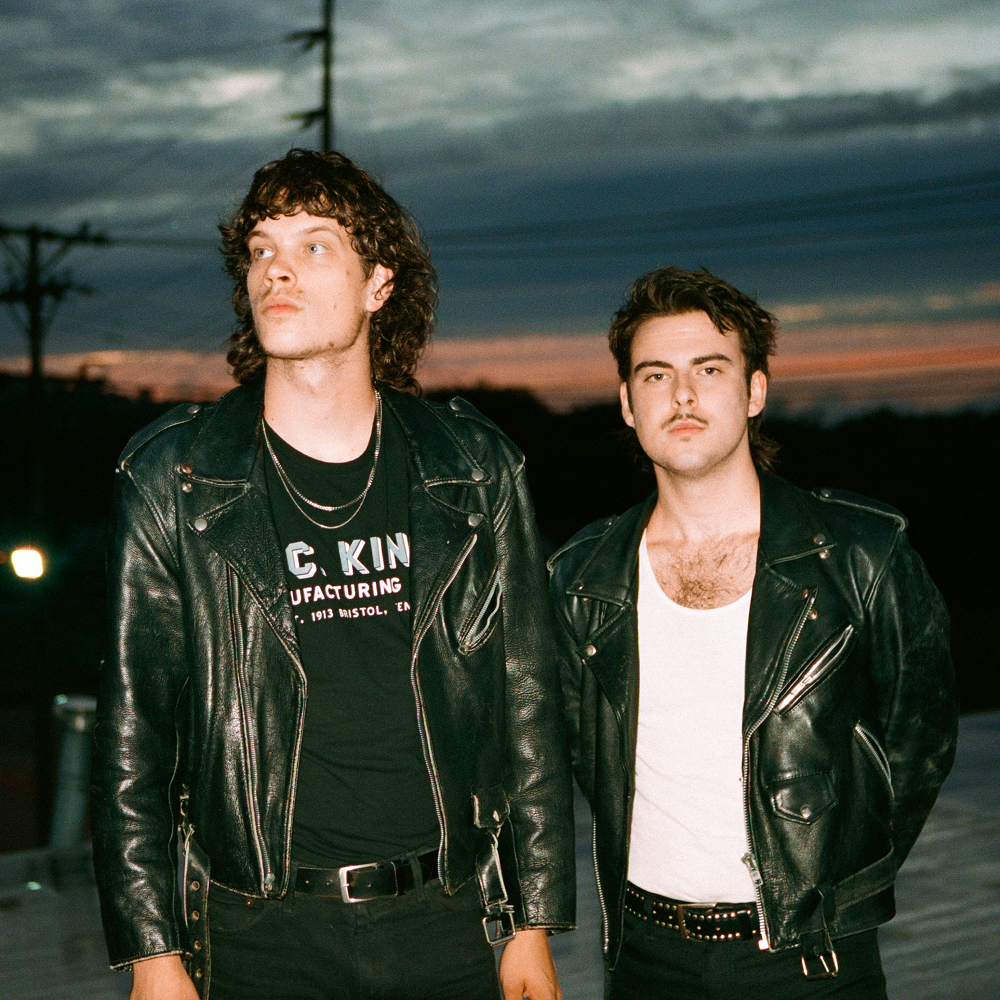
Bushwick, quiet on Friday afternoon, had a distant humming that could barely be picked up by the ear. Walking on Troutman street, the minimal noise became louder. The sound guided us on a perfect path up to Brooklyn Made, enticing the listener to follow the sound and take a peek inside.
The Nashville-based rock band, The Criticals, were proudly standing on stage in the middle of their sound check. They stood out in front of the mid-century modern pattern on the stage’s back wall while patiently embracing the process. The band includes Parker Forbes (lead vocals), Cole Shugart (lead guitar), J. Rudolfo Rosas (rhythm guitar), David Michael Meadows (bass guitar), and Tyelen Gibbs (drums). The band started with the intro to what would be the first song of the show. The intro reverberated as the instruments kicked in, the coordinated sound ultimately shaking the bones of the venue. It was that good, and it was only the soundcheck. They continued to practice small portions of their songs, starting and stopping at random points. The band’s talent was evident through their ability to pick up mid-song and be completely locked in together. With their chill and easy going nature, The Criticals finished sound check plainly sailing.
We caught up with singer Parker Forbes and guitarist Cole Shugart a few hours before their March 31st Brooklyn gig, where they answered a few questions for the groovement:
The two of you are from Nashville and have been present in that scene for years. How has the Nashville music scene been an influence in your music and your life?
Cole: Huge influence.
Parker: I think kind of in every way, it sort of shaped us. I grew up as a drummer in my teenage years, and even before, we played in some bands together. I was on drums, and he started playing guitar about the same age as me. Franklin, Brentwood, all surrounding areas, and Nashville, there were a hundred bands of kids our age easily, and they were all good. It was kind of crazy when you look back on it, just the number of kids we were friends with who were so talented.
Cole: It’s also interesting because so many legacy artists retire in Nashville. It seems like there’s a pipeline of people who live in LA, then when they’re ready to raise their kids or retire, they move to Nashville, cause you don’t really get bothered when you go to a restaurant. A lot of these kids we’d be playing with, their dads would be in huge bands. Me and Parker never had parents or people in the music industry that were related to us. It was really cool to show up with our little rinky-dink instruments to somebody’s basement, and they have an ungodly amount of gear. It was really cool.
What was the first concert you went to?
Parker: Mine was Keith Urban. I went to Keith Urban with my parents in Memphis when I was probably seven, eight. I don’t really remember the show all too well, it was so long ago. That was an arena show, and that was my first experience like, ‘damn this is cool.’
Cole: Mine was James Taylor at a place called Starwood, an amphitheater in Nashville. It’s since shut down. It was cool as fuck. I don’t really remember the show at all, but I remember thinking it was cool as hell.
Personally, how did each of you get started in music?
Parker: My dad is a big hair metal guy, 80s new wave. He loves Journey and Motley Crue. I mean this is right when we got cable, but there used to be a channel, VH1, and he had a bunch of these DVDs of all the greatest hits music videos for those bands. The drummers had these massive, ridiculously over the top kits and fifteen fucking toms, and it was the coolest shit ever. I had no idea how to play anything, but I’d always wanted to play drums. I got inspired by those videos mostly. And we moved to Nashville when I was nine, and then I was like, fuck it, I got to start meeting some people.
Cole: For me, my grandpa used to play in a surf band in Detroit. He had a child and moved back to Tennessee to a small town outside of Nashville. And he always played guitar growing up, which was cool to me. My parents are big music lovers, and I was introduced to a lot of bands growing up. I always wanted to play guitar, but my parents made me take piano for six months. And during that six months, my grandma went to a gas station, and there was a guitar behind the clerk, and she was like “why the hell are you selling that guitar?” And he was like, “some guy just came in five minutes ago and said I need $10 worth of gas, and I have a guitar to trade, and it was done.” And she was like “how much will you sell it to me for?” The clerk said $10, and that was my guitar. And then just playing ever since.
What was the first concert you ever performed? Was there a specific moment or feeling knowing this is what you wanted to keep doing?
Parker: First show I ever played was in an AC/DC tribute band when I was eleven. We played at a place in Franklin right outside of Nashville. We only played four or five songs, and I just had a blast. I was on drums.
Cole: My first show was at Kids on Stage when I was eleven at a summer camp where all these kids would come, and they would assign you a band with all the other kids. It was cool. We played Sweet Home Alabama and Come Together. And I was shitting my pants the whole time, I was so scared. But I had a great time.
What has been the path of pursuing music after high school, and how has that journey been?
Parker: It’s weird because I think a lot of bands that I thought would still be doing it after high school, let alone six, seven years out of high school aren’t really doing it anymore or at all.
Cole: Of those hundred, maybe ten are still around.
Parker: A lot of them that did stay together moved somewhere else, so in Nashville, there are hardly any. We formed The Criticals well after high school, but we were in so many different projects growing up, that it opened our eyes to what to do and what not to do, versus if we started playing, like a lot of kids, when they’re in high school and their first band is the one they try to go for. You have to trial and error a lot before you find out what works. Even still, we are not doing stuff we did six months ago and are doing new stuff we maybe won’t do later, you just figure it out along the way.
Cole: It’s tough when you get out of high school ‘cause real life hits you. I think that’s where a lot of bands start dropping off, unfortunately. At the end of the day, if you’re doing what you love, just keep pressing for it. A lot of people don’t realize we’re a new band to 99% of the world, even though we’ve been doing it for a decade. There’s a lot of time that has to happen, a lot of development. Just keep at it.
What is the origin of your name?
Parker: I was in college in LA for two years, and I was about to move back to Nashville. I wanted to start a rock band and the name was the hardest thing ever. I was sitting watching a commercial. It was some Life Alert commercial, and it kept saying critical on the screen. I thought that was pretty cool; put an ‘S’ behind it. I always liked ‘the’ band names, and I feel like a lot of people don’t do that anymore.
The Criticals started with the two of you. How did the members now come into the band?
Parker: I started the band myself, and I was kind of writing and recording the first few songs. And then we had so many different revolving band members, everyone was in for three months and out. It was getting kind of exhausting, and I wanted a band that’s going to stay steady. Even after Cole joined, we still had a year and a half of constant revolvers. We’ve had this group together for a year and a half.
Cole: Rosas was the first, which was one of Parker’s friends. He joined us for a show and has been with us ever since, and that was three years ago. Tyelen was the same, another band you [Parker] were working with. Michael was my roommate, and he had given up music. And he came to see us play and was like ‘holy shit.’ I think he didn’t realize we were a band band. I think he thought it was a side project kind of thing. The next day he’s sitting there like, ‘so what’s going on with the guys, is everybody in this for real?’ At the time, the bass player didn’t want to tour, and this was right after Covid. I told him the bass player may want to dip pretty soon, and he [Meadows] was like, ‘so you need a bass player, huh?’ And the next day, a bass showed up on our doorstep, and he learned all the songs.
How would you describe your music?
Parker: We’re all influenced by a lot of different shit. I know that’s probably a common answer, but we are. Even just Cole and I grew up on a ton of different stuff from our parents. We were growing up on pop, rock, country, everything. All that seeps into our music at some point, but if I had to say, I’d say indie rock, alternative rock. But we got some funk in there, some pop, and it’s impossible not to seep in ‘cause we love it.
What’s next for you?
Parker: Finally putting out some new tunes. We’re excited for it.
Cole: Just turned in the masters, and that will start rolling out in the next couple months. I think the EP will come out in July, full-length after that, probably early next year. And touring our booties off, just cruising.
* * *
The venue started filling as the view from inside became a sea of bodies. After two dynamic openers, Savioa, and the Telescreens, The Criticals followed immediately after. The hard hitting intro began as the instruments kicked in, this time accompanied by the encouraging cheers from the audience. Just like in sound check, the intro resonated throughout the building and built up the anticipation from the crowd.
Forbes soon came out from behind the stage and took his place front and center. He is truly a spitting image of a young Mick Jagger, and we can happily report that talent-wise, he’s climbing up to become naturally just as distinguished as a frontman. The sound and tone from the band was unbelievable, almost falsely generated because it was so perfect. Shugart and Rosas were completely locked in together, sounding so in sync they could have just been one person.
The Criticals performed their set partially in a Ramones style, playing one song and immediately kicking into another without missing a beat. They then paused to introduce a song or interact with the audience. They played a mix of their previously recorded originals, such as “Good Lookin,” “Under Your Nose,” “High Life Clinic,”, “Treat Ya Better,” and several new unreleased originals.
In their original song, “Homebody,” the song lyrics read, “searching for better days, but we’ll be okay.” Forbes sang the first part, and then paused for just a second while the instruments played. Then he looked up at the audience and added in his voice, “We’re all going to be ok.” The audience passionately and positively reacted to the small gesture instilling hope that whatever is going on now, we’re all going to be ok.
Throughout their set, the band was completely tight together. The drummer, Gibbs, kept impeccable time, a natural metronome. And the bass player, Meadows, executed perfect bass lines that added depth to the songs and pulse through the body.
The Criticals played their last song, “Under Your Nose,” as the entire crowd jumped with monumental stamina the entire time. As the song ended, Forbes remarked, “I love you Brooklyn, good night.” The crowd erupted in cheers as the band walked backstage. The cheers didn’t cease, as the decibels grew louder until The Crticals returned to the stage as the clock struck midnight.
The four song encore was filled with the same energy they’d been delivering for hours, their fuse still not out, and the crowd was completely enticed. The last song was “Last Nite” by The Strokes, paying homage to the New York City scene. Forbes jumped into the audience, and then returned to the stage with a childlike smile on his face.
The audience roared as the band unplugged and left the stage, then almost immediately came down to greet their friends and fans as people flooded out of the venue. The Criticals may potentially be one of the most talented up-and-coming rock bands. Watch out for them, they’re coming fast.

Connect with The Criticals on Instagram, Spotify, and their website.
📸: shot by Nicole Guillen
